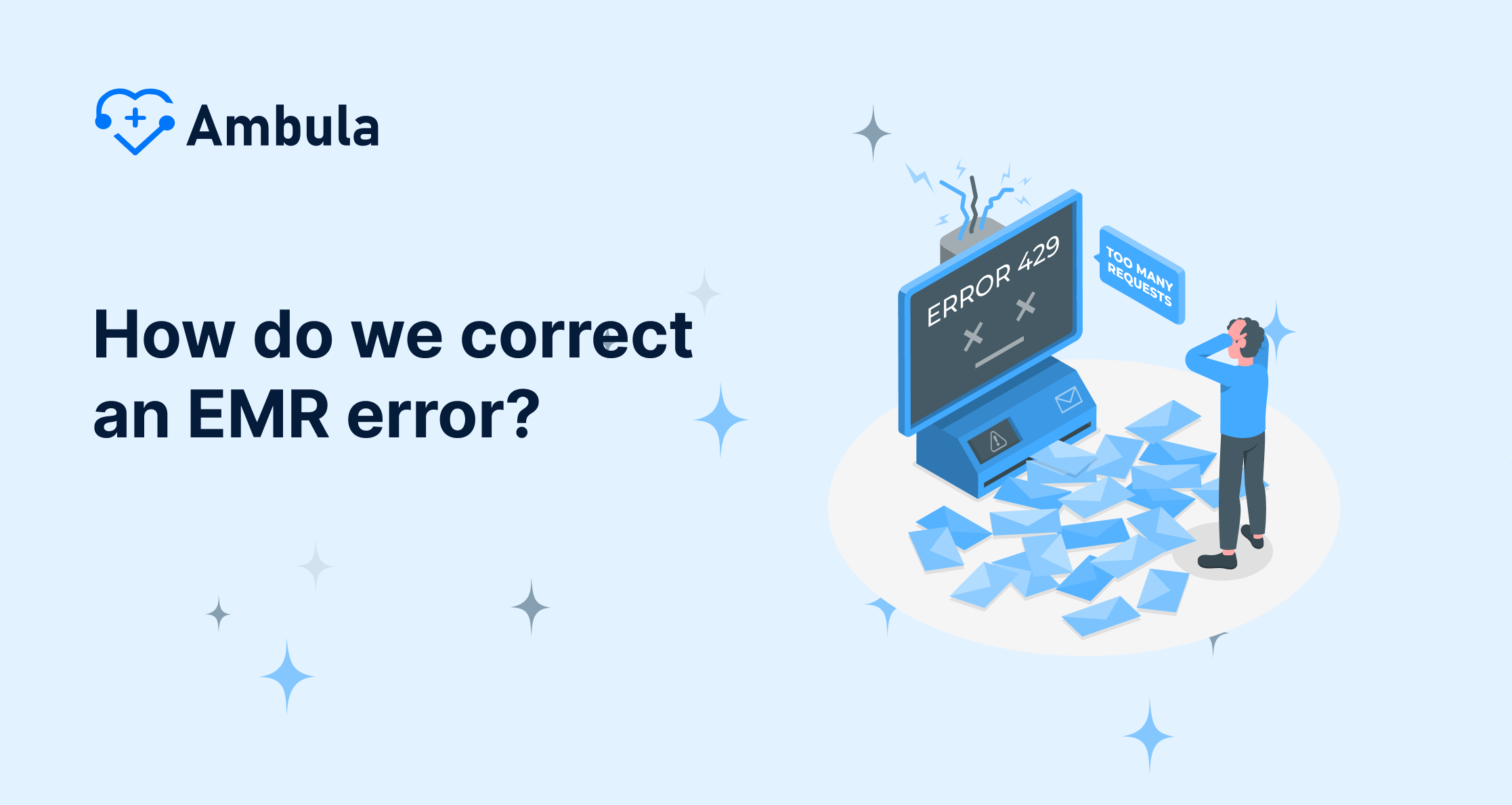Topics:
-
- Service Breakdown
- Similarities
- Differences
- Cost Breakdown
- Which Is Better?
Choosing the right structural/operational technology, such as that provided by EMRs & EHRs, is an auspicious decision to make or break a medical practice. Here at Ambula, we aim to provide straightforward information and transparency about our services to allow users to make the right decision for their medical practice, whether it is an ASC or not. Part of this transparency includes breaking down Ambula’s services versus those of our competitors, one of which is Athena Health’s EHR.
Service Breakdown of Athena Health EHR vs. Ambula EMR
Athena Health’s leading technological service is an EHR (electronic health record), which takes on a broad approach to practice management. At the same time, Ambula offers a more specialized EMR (electronic medical record) software as its primary management system. EHRs and EMRs are often confused as synonymous when the two are distinctly different.
In short, EHRs are digital records storing a patient’s general/comprehensive information. Large medical practices, such as hospitals, often employ them to store a vast quantity of health information. An EMR is an electronic medical record that replaces a traditional paper chart to record and store patient information pre, intra, and post-medical visits. EMRs store information in a similar manner to EHRs. However, they are normally perceived as better for smaller or private practices due to their specificity or ability to specialize the patient information being recorded based on a specific practice’s needs.
To learn more about the differences between EHRs and EMRs, one can consult some of Ambula’s past resources breaking down this topic, such as formally linked ones.
Similarities
Now that there is a clear understanding of the type of service offered by both Athena Health (EHR) and Ambula Healthcare (EMR), it will be beneficial to explore what similarities, if any at all, exist between these two fundamentally different software.
- Specialties: To begin, although Athena Health and Ambula offer no limitation on applying their services, they specifically offer practice management software that claims to be adapted to various specialties.
- Collaboration: Athena Health’s EHR purportedly allows clinicians to collaborate on patient care plans directly within the patient’s chart. Similarly, Ambula’s EMR allows programming that specifically grants only workers with encrypted permissions access to specific information and forms, thus promoting collaborations among clinicians in practice and distinct use organization between them.
- Goals: Most notably, both Ambula and Athena Health aims to improve the efficiency of any practice, both in function and in cost of operation, resulting in more significant revenue for the practice.
Differences
As previously mentioned, the fundamental difference between Athena Health and Ambula is that EHRs do not equate to EMRs, which translates clearly when dissecting their differences.
- Custom Applications: Athena’s EHR claims to apply to practices as small as only one physician and those at a hospital scale. Although commendable, this wide applicability often results in software lacking the customizability a smaller practice truly needs to store and record a patient’s information. Softwares with strictly inherent or rigid formats often lack user autonomy, frustrating clinicians trying to collaborate. On the other hand, Ambula’s EMR is not only widely applicable to any practice but is also explicitly meant to be completely and easily customizable to a smaller practice, such as an ASC, if needed.
- Usability: While Athena’s resources do not highlight any specific learning curve time frame, Ambula proudly discloses a software and form builder that takes only 15 minutes for an individual at any level of experience to master.
- Specialties & Focus: Although Athena Health and Ambula share their orthopedic specialty offerings, Ambula stands out in offering personal injury and pain management-focused systems. This field is often lacking in consideration regarding EHR and EMR technology advancements. Moreover, Ambula is one of the few EMRs that is ASC / surgery-focused.
- Formatting: Athena Health claims to supply intuitive workflows, while Ambula provides both inherent workflow options, as well as a unique workflow customization feature that allows a user to personalize, edit, and specifically tailor their workflows to all aspects of their practice. This custom workflow feature is observably missing from most, if not all of Ambula’s adversaries. We chose to fill this technological gap with our simple-to-use, unique form and workflow builders.
- Information Sharing: Because Athena Health is an EHR, it uses a cloud-based network that “enables seamless patient record sharing through [their] connections with Carequality and CommonWell.” This is a common EHR feature and one of the main reasons EHRs are often associated with large-scale practices, such as hospitals, that must share information between themselves and departments. Quite advantageously, Ambula has created an office EMR that seamlessly connects a physician’s office to an ASC, allowing physicians to send both patients to a surgery center and also all relevant patient data straight from the office to the ASC’s EMR.
Ambula features for pain management specialist
Within pain management, Ambula’s offers a range of specialized features designed to enhance the workflow and efficiency of pain management specialists’ EMR software. Ambula understands the unique challenges faced by these practitioners and aims to provide targeted solutions. The software offers comprehensive tools for tracking and managing chronic pain conditions, including detailed pain assessment forms, medication management, and treatment plan templates. Ambula’s EMR also includes built-in integrations with diagnostic imaging systems, allowing pain management specialists to access and review imaging results directly within the patient’s electronic record. With Ambula, pain management specialists can streamline their documentation processes, improve collaboration with interdisciplinary teams, and provide personalized care to their patients.
Cost Breakdown
Now that the most relevant similarities and differences between Athena Health’s EHR and Ambula Healthcare’s EMR have been established, we will discuss one of the arguably most important aspects of medical technology: cost.
Athena Health boasts of a lack of hidden fees and custom, cost-reducing quotes, and yet keeps the exact cost of service a mystery, only claiming an estimate based on a practice’s percent of collections.
Alternatively, starting at only $199 per provider a month, Ambula’s cost transparency is anything but ambiguous and obscure, even going as far as to accommodate part-time physicians with free access when operating five or fewer times a month. And if one is still unsure after the satisfyingly straightforward information Ambula provides consumers, then surely a 30-day free trial will help clarify any hesitance. Prospects can sign up for a free trial with Ambula here.
Which Is Better, Athena Health EHR or Ambula EMR?
At the end of the day, only those working in or running a medical practice can accurately decipher which practice management technology is the better option for them. Ambula is not here to influence you but to provide you with the much-needed information breaking down the ins and outs of streamlining a medical practice.
Ambula’s sole purpose is to simplify, modernize, and revolutionize how practices and surgery centers get their work done. To learn more about whether or not Ambula’s EMR is the right fit for your practice, contact the Ambula Healthcare team at (818) 308-4108!




